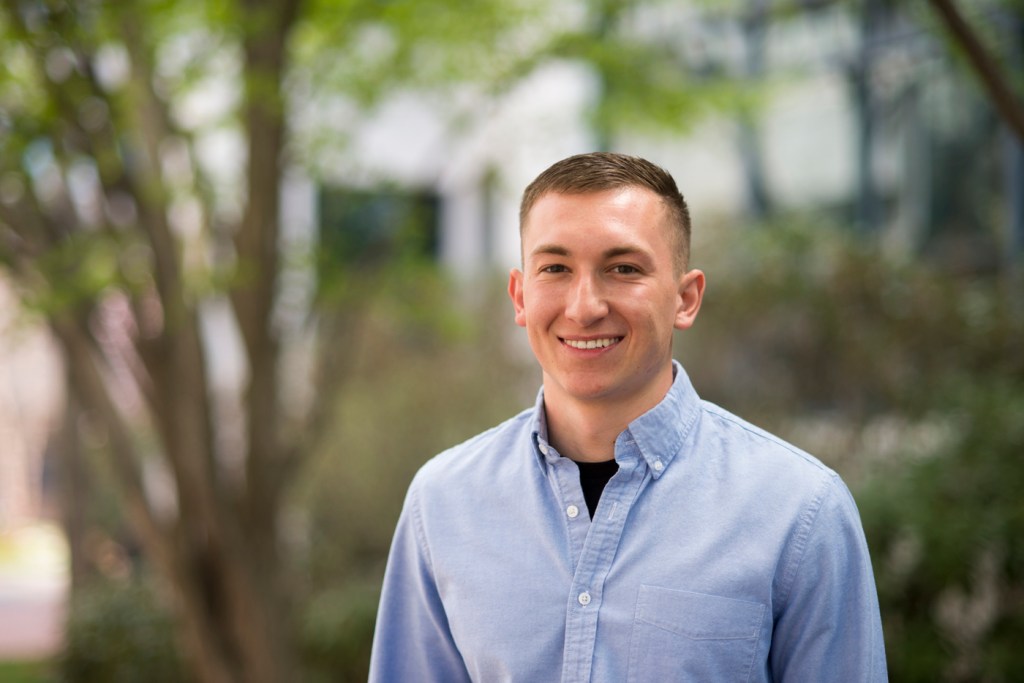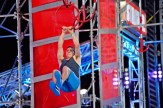Meet the graduates: David Barra

David Barra is a natural-born leader and an insatiable learner, a selfless humanitarian and a member of Northeastern’s “Huntington 100.”
His resumé reads like the curriculum vitae of the quintessential valedictorian: Barra, S’15, achieved a 3.94 GPA in the biology program; served as the cadet battalion commander of Northeastern’s Liberty Battalion, where he ranked No. 1 on the Order of Merit List; and completed two prestigious co-ops—one with Massachusetts General Hospital in Boston, the other with the Madigan Army Medical Center in Washington state. In his “free time” he tutored his peers in organic chemistry; ran orientation sessions for incoming students; led an Alternative Spring Break project in the Everglades; and volunteered with the Mirror Foundation, a nongovernmental organization in northern Thailand.
Here, Barra discusses his past five years at Northeastern, from his favorite memories to co-op’s role in shaping his career path.
You’ll be attending the Tufts University School of Medicine. What do you plan to focus on in medical school?
I’m mostly interested in anesthesiology and emergency medicine, which goes hand in hand with military medicine. I have been granted an educational delay to put off my service in the Army, and I’ll be attending Tufts Medical School on a full scholarship, through the F. Edward Hébert Armed Forces Health Professions Scholarship Program. After medical school, I’ll be required to serve as an Army physician for 12 years, the first four of which I’ll spend as a resident at a military medical center.
When did you realize that you wanted to become a doctor?
My interest in becoming a doctor originated when I was in eighth grade, when I accidentally cracked open my head on the corner of a table. I was terrified, because I had never been to the hospital before. But when I got there, the physician was like a knight in shining armor and I saw that doctors see people at their worst and comfort them when they need help the most. Then and there, I realized that bringing comfort to someone in need is the most rewarding thing there is and I recognized that I might want to work in healthcare.
I wasn’t set on the field until I did my co-op at MGH, as a respiratory care aid. I started shadowing a doctor in the emergency room and he ended up becoming a great mentor of mine and writing me a letter of recommendation for Tufts. Seeing him work inspired me and made me realize that I definitely wanted to apply to the Tufts early assurance program.
My co-op at the Madigan Army Medical Center, where I shadowed residents and physicians in the orthopedic and emergency room departments, introduced me to military medicine, which I quickly came to love. The doctors and nurses at Madigan were all about teamwork—no one there cared about making a profit, only about giving the best possible care to soldiers and their families. And there was camaraderie among the staff, these young, fit people who were devoted to staying active outside of work, which inspired me even more.
How have your co-op and ROTC experiences shaped your leadership values?
Leading the Liberty Battalion—which comprises more than 100 cadets from Northeastern, Boston College, Wentworth Institute of Technology, and the University of Massachusetts—was a huge challenge. But I grew to like challenges and developed a strong ability to persevere. I welcomed the difficult times, because I knew that successfully navigating those roadblocks would ultimately make me a better leader.
In particular, I learned how to rely on the people around me while also understanding their limitations. Everyone has different limits and capabilities, and finding a way to accomplish tasks together in a way that surpasses what anyone could achieve individually was one of my chief goals.
Nothing, I found out, will ever be easy—everything will continue to get tougher even as I continue to get stronger along the way. Medicine is a constantly changing field, one in which you perpetually need to be reading up on the latest studies and findings. This was driven home to me at Madigan, where the concept of edification was particularly strong. With hard work, you can achieve all the success you want, but if the people around you don’t make it too, then your efforts have been for naught. As a leader, you have to be willing to edify others and help them achieve their dreams.
You were something of a big man on campus. What will you miss most about the Northeastern community?
Northeastern’s campus is unique. There’s a sparkle in the eyes of students, particularly the freshmen, who are eager to go out and explore. As an orientation leader, I would tell the parents of the incoming students to implore their kids to take that special glow, to run with it, to never let it go. Things will get tough—for me, finals were always stressful and I didn’t get much sleep over the past five years due to my busy schedule—but it’s clear to me that the students love Northeastern, and that you can’t find that kind of enthusiasm anywhere else. What I’ll miss the most is simple: Just walking around campus and seeing the excitement.
Describe your fondest memory of the past five years.
I was scheduled to march the 2014 Boston Marathon with the Massachusetts National Guard. I had worked to assemble a group of Liberty Battalion cadets and we were wearing combat boots, fatigue bottoms, and T-shirts. We set out just after 6 a.m., hours before the elite runners were to begin. Not long into the walk, I started jogging with my friend, one of the other cadets. We just kept going, and eventually decided that we’d try to run the whole race. Around the 20-mile marker, my friend, who had suffered a minor leg injury weeks before, told me that he couldn’t go any further. I told him that I’d stick with him, but one of the officers in van that had been trailing us ordered me to finish the run. During those last six miles, I realized that I had the potential to be the first one to finish the marathon that day. I picked up the pace and ran the final five miles in about 32 minutes. Around 10:20 a.m., I started nearing the finish line. It was a surreal moment, taking a right on Hereford Street and then a left on Boylston Street. The spectators had not been expecting anyone to finish so early—this was even before the first wheelchair winner had crossed the finish line—and then all of the sudden they saw a soldier running in front of a follow van, wearing combat boots and his Massachusetts National Guard T-shirt. They started cheering for me and I realized that this moment was bigger than my running this race, that a soldier running for the state’s National Guard represented a lot more given the bombings the previous year. I ended up being the first finisher of the 2014 Boston Marathon, running the race in 4 hours and 10 minutes. It was the first time I’ve ever run more than six consecutive miles. I couldn’t walk for the following three days and I couldn’t run for a month, but it was the most powerful moment of my Northeastern career.





